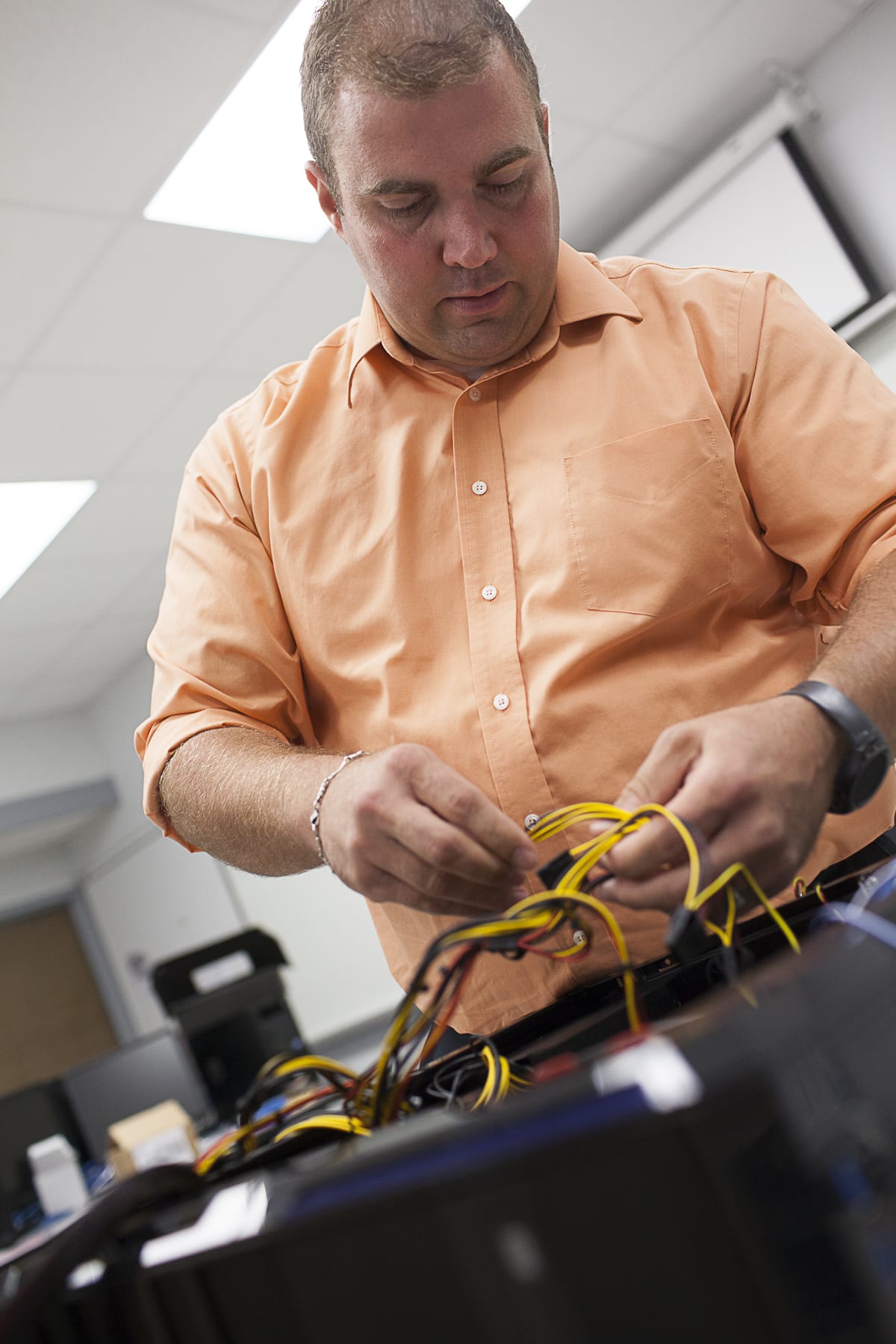CCN Focus: Stephen Lyford of Wharton Community College

Dr. Stephen Lyford during a class.
As a part of the National Convergence Technology Center (CTC) featured blogs, we would like to introduce to you some of our professors and instructors in the Convergence College Network (CCN) community. The CCN is a select cohort of community colleges and universities from across the country that connects IT educators with a wealth of resources to enhance their programs. In this week’s Q&A blog, we’re featuring Dr. Stephen Lyford, Instructor of Computer Science in Wharton Community College in Wharton, TX.
What do you teach? I teach Introduction to Computing, CyberSecurity, PC Operating Systems, Computer Hardware, Network Administration, Active Directory, Operating System Security, and Security Management
How long have you been a teacher? Eight years full time, four years part time
Did you have a job in industry before you became a teacher? Yes, I have worked as an IT technician, a Network Technician, Telecom and A/V System Analyst, Network Administrator, and an IT Manager, with about 15 years of industry experience.
What sparked your interest in teaching? I started teaching part-time for a little extra money, and found that I really enjoyed it, so when a full-time position opened, I applied and got the job.
What is the secret to successfully teaching IT to students? I think the secret to ensuring my students succeed is finding the right combination of humor in the lecture to ensure they are paying attention and presenting them with plenty of hands-on opportunities to practice what they are learning about. In many cases, I believe the hands-on is just as important if not more important in some cases to the student grasping a concept.
What’s the biggest challenge teaching IT? I would say the biggest challenge is ensuring that the students understand how many different ways a problem can be solved and that it is not just one way and that’s it, this gives students a chance to perform and fix tasks in a way that suites their learning style.
Do you have a favorite class to teach? If so, why? Yes, my favorite class is Intro to Cybersecurity, because I really enjoy the topic of cybersecurity and the facet of what all it covers, plus it is such a crucial topic with the way technology has taken over almost every facet of business and industry.
What is the best thing about being a teacher? Seeing the excitement on a student’s face when they find out they are approved and will be graduating, and then also when they come to me excited about the new job they got doing something in the IT field.
What advice would you give an IT student about graduate and enter the workforce? – Work hard, never stop learning, and find a facet of IT that you really enjoy, and then dive deep in that topic. If you do that, you will get far!
IT is always changing – how do you keep up with the ongoing evolution of IT? Our department is vigilant about keeping up with training and what is going on in the IT field. We do that through great training programs like what the CCN puts on, as well as free web-ex trainings and seminars.
How do you see the IT landscape changing in the next 5 years? In the next five years I see moving more and more away from traditional desktop setups in offices and moving more towards virtual employees or something similar where they are working from home and out in the field. I also see IoT becoming much bigger and expanding tremendously!
Is there anything else we should know but didn’t ask about? I also serve as the program director of the Computer Science department at our school and I would like to add that, I think that having the right co-workers and fellow teachers makes a huge difference in student success. It is invaluable to be able to bounce ideas and test labs on fellow instructors and to be able to share material and teaching ideas and labs makes a big difference because it allows us a teachers to find the right combination of material and hands-on labs that work for us and for our students.
